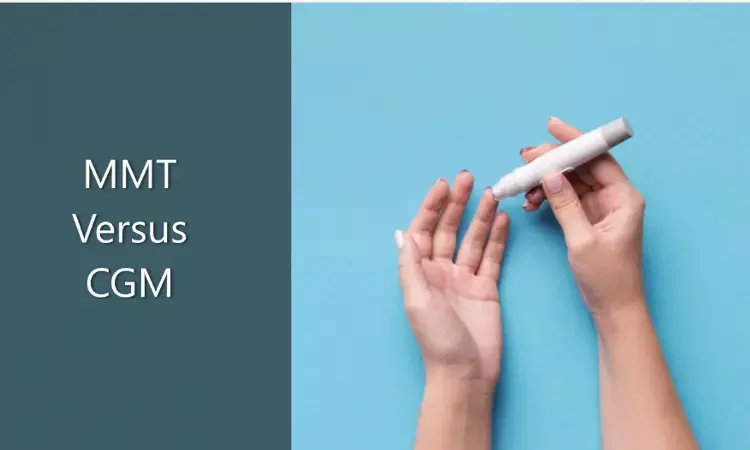- Home
- Medical news & Guidelines
- Anesthesiology
- Cardiology and CTVS
- Critical Care
- Dentistry
- Dermatology
- Diabetes and Endocrinology
- ENT
- Gastroenterology
- Medicine
- Nephrology
- Neurology
- Obstretics-Gynaecology
- Oncology
- Ophthalmology
- Orthopaedics
- Pediatrics-Neonatology
- Psychiatry
- Pulmonology
- Radiology
- Surgery
- Urology
- Laboratory Medicine
- Diet
- Nursing
- Paramedical
- Physiotherapy
- Health news
- Fact Check
- Bone Health Fact Check
- Brain Health Fact Check
- Cancer Related Fact Check
- Child Care Fact Check
- Dental and oral health fact check
- Diabetes and metabolic health fact check
- Diet and Nutrition Fact Check
- Eye and ENT Care Fact Check
- Fitness fact check
- Gut health fact check
- Heart health fact check
- Kidney health fact check
- Medical education fact check
- Men's health fact check
- Respiratory fact check
- Skin and hair care fact check
- Vaccine and Immunization fact check
- Women's health fact check
- AYUSH
- State News
- Andaman and Nicobar Islands
- Andhra Pradesh
- Arunachal Pradesh
- Assam
- Bihar
- Chandigarh
- Chattisgarh
- Dadra and Nagar Haveli
- Daman and Diu
- Delhi
- Goa
- Gujarat
- Haryana
- Himachal Pradesh
- Jammu & Kashmir
- Jharkhand
- Karnataka
- Kerala
- Ladakh
- Lakshadweep
- Madhya Pradesh
- Maharashtra
- Manipur
- Meghalaya
- Mizoram
- Nagaland
- Odisha
- Puducherry
- Punjab
- Rajasthan
- Sikkim
- Tamil Nadu
- Telangana
- Tripura
- Uttar Pradesh
- Uttrakhand
- West Bengal
- Medical Education
- Industry
Mixed meal test detects Gastric Bypass related Hypoglycemia Better than CGM

Bariatric surgery (BS) represents a valid therapeutic choice for the management of severe obesity since it provides durable weight loss and improvement/remission of obesity-related comorbidities. However, hypoglycemia remains a challenging complication of BS, especially with gastric bypass (GB).
In a recent study, researchers have found mixed meal test (MMT) is superior to a continuous glucose monitoring system (CGMS) in detecting hypoglycemia after gastric bypass. The study findings were published in The Journal of Clinical Endocrinology and Metabolism on 22 December 2021.
Gastric bypass surgery increases the postprandial glucose levels, which in turn can predispose to the late complication of hypoglycemia. Diagnosis remains difficult and requires documentation of symptoms associated with hypoglycemia and relief of symptoms when blood glucose normalizes (Whipple triad). In this present study, Dr Marzieh Salehi and her team conducted a study to compare the yield of a mixed meal test and continuous glucose monitoring system in detecting hypoglycemia after gastric bypass.
The researchers conducted a study at the General Clinical Research Unit, Cincinnati Children's Hospital, USA. They evaluated the glucose profiles of 15 patients with documented recurrent clinical hypoglycemia after gastric bypass, 8 matched asymptomatic GB patients and 9 healthy weight-matched nonoperated controls. The patients were subjected to MMT in a controlled setting followed by wearing a CGM for 4 to 5 days.
Key findings of the study:
- Upon analysis, the researchers found that the patients with prior GB had larger glucose variability during both MMT and CGMS when compared with nonsurgical controls regardless of their hypoglycemic status.
- They also found that MMT was superior to CGM use in detecting post-prandial hypoglycemia, with greater sensitivity (71%) and specificity (100%) compared with CGM (47% and 88%, respectively).
The authors concluded, "Our findings indicate that a fixed carbohydrate ingestion during MMT is a more reliable test to diagnose GB-related hypoglycemia compared with CGMS during free-living state."
For further information:
DOI: https://doi.org/10.1210/clinem/dgab913
Medical Dialogues Bureau consists of a team of passionate medical/scientific writers, led by doctors and healthcare researchers. Our team efforts to bring you updated and timely news about the important happenings of the medical and healthcare sector. Our editorial team can be reached at editorial@medicaldialogues.in.
Dr Kamal Kant Kohli-MBBS, DTCD- a chest specialist with more than 30 years of practice and a flair for writing clinical articles, Dr Kamal Kant Kohli joined Medical Dialogues as a Chief Editor of Medical News. Besides writing articles, as an editor, he proofreads and verifies all the medical content published on Medical Dialogues including those coming from journals, studies,medical conferences,guidelines etc. Email: drkohli@medicaldialogues.in. Contact no. 011-43720751


